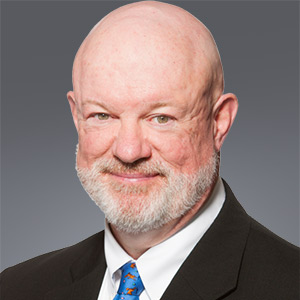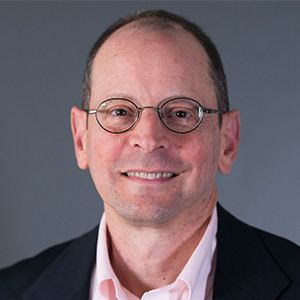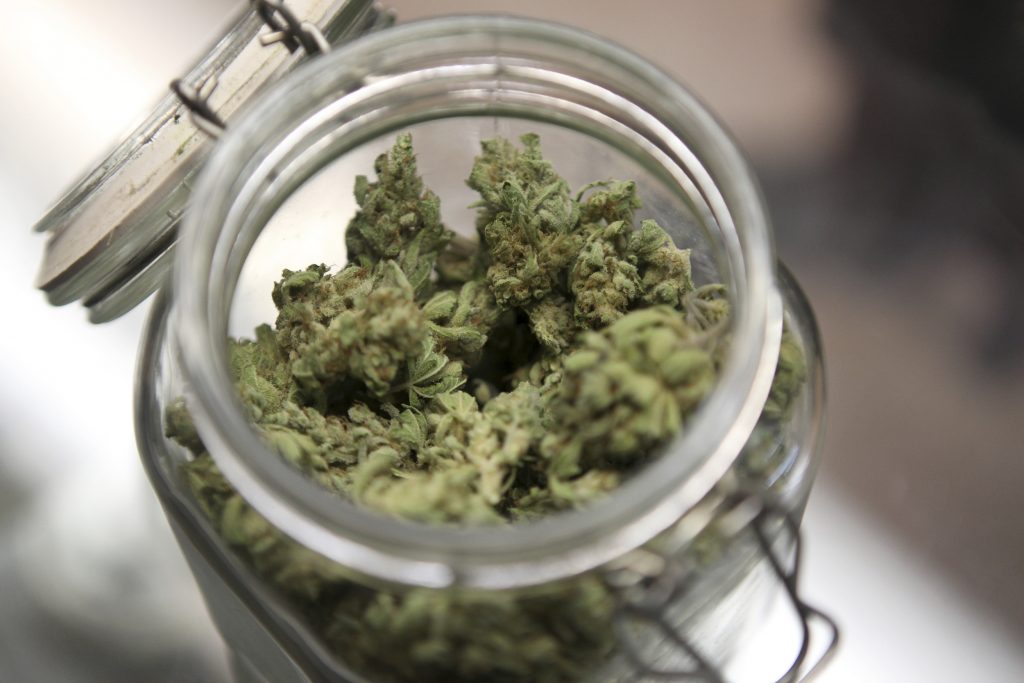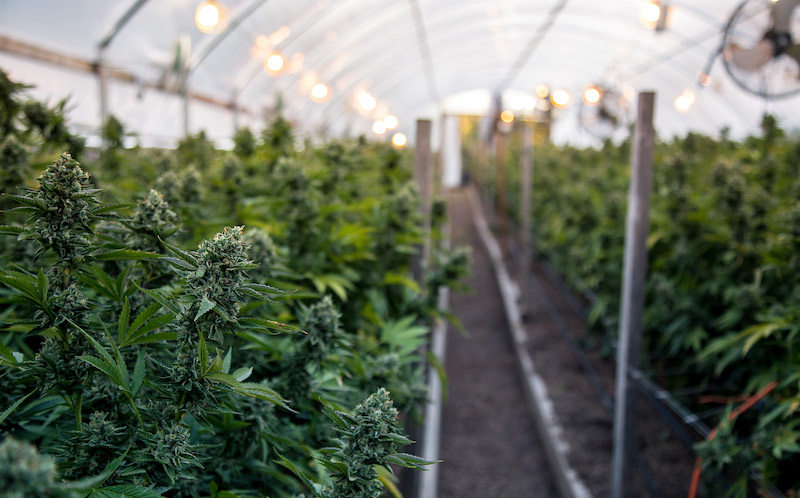Episode
March 8, 2020
Should Drug Prohibition Be Ended Nationwide? (28:42)
America’s drug war has been a part of our lives for more than 100 years. With legalization and decriminalization of marijuana in an increasing number of states, conflicts have emerged on drug policy and power. To what extent can and should the states act independently of the federal government on an issue with national ramifications? Cato’s Trevor Burrus, Heritage’s Paul Larkin, and Brookings’s Jonathan Rauch will discuss in this episode: should drug prohibition be ended nationwide?
Transcript
00:00 Caleb O. Brown: If Americans can agree on nothing else, we should at least agree that much of the bitterness and tribalism that is driving our public policy discourse today is unhealthy for our country. The aim of this project of the Cato Institute and the Brookings Institution is to establish a gold standard for public discussions of policy issues. To be clear, just because we’re lowering the temperature on these discussions doesn’t mean that we’re abandoning deeply held ideas. Instead, the hope is that we can discuss, productively and engagingly, important, contentious, public policy issues. Welcome to Sphere.
Our resolution today fits this bill nicely; drug prohibition should be ended nationwide. Our discussants today, in no particular order: Paul Larkin, a Rumpel Senior Legal Research Fellow at the Heritage Foundation. He is against today’s resolution. Jonathan Rauch, a Senior Fellow at the Brookings Institution. He will offer an argument that is neither for nor against the resolution, and starting us off will be Trevor Burrus, a Research Fellow at the Cato Institute. He is for the resolution. We’ll begin with brief opening statements.
01:46 Trevor Burrus: There’s one main reason that we should legalize drugs. It’s because drug addicts are human beings. And that’s really the vexing question when you think about why we have treatment for alcoholics, and cages for heroin addicts and other drug users. It wasn’t always that way, it didn’t have to be that way. And I think that we think about the history of prohibition we have to think about sort of the three prongs of prohibition. The first one is the perception of what the drug does. So, does this drug make you insane? Does it make you maniacal, or all these things? The second one is the perception of the drug user. Who does these drugs? Especially focusing on race and class and possibly other people like hippies. And then the third prong of the drug war is the dehumanization of drug users, which is what has to happen if you treat someone’s problem with a drug, with a given drug, with punishment of cages.
We know that prohibition adulterates drugs. It makes drugs, you know, have impurities and other things that could be dangerous. But prohibition also makes drugs stronger, and by doing that, it makes them more dangerous in situations, especially if they’re addictive. A good way of thinking about this is alcohol prohibition. Before alcohol prohibition what was the most popular drink in America? It was beer and wine. After alcohol prohibition, what was the most popular drink in America? No, it was not bathtub gin. It went back to beer and wine. But during alcohol prohibition, the most popular drink in America were hard, high-potency spirits, bathtub gin smuggled from Canada, and things like that. That was not good for alcoholics. That was not good for people who use alcohol.
Same thing happened with opiates. When you, the reason this occurs, it’s called the iron law of prohibition, is because if you’re smuggling something in, you want the highest potency form of it. And what we see today in that, and the apotheosis of the iron law of prohibition is the fentanyl crisis. Fentanyl, people have probably heard about it, but you may not understand how terrifying it actually is. In one gram of fentanyl, which is a synthetic opiate, one gram of fentanyl, there are between three and 500 lethal doses. Lethal doses. In one envelope that you could send from someone in China to smuggle these drugs in the United States, you could have up to 1,000 doses, or even more. You think about how potent this is. This is exactly what the drug prohibition does. It pushes people toward these drugs. Now, is it the case that the demand side is all about fentanyl, that the users of the addicts want fentanyl? No. Many of them do not. And the real tragedy that’s happening right now is about 72,000 people died of drug overdoses last year.
Now, we’re going to talk about the cost of legalization and the cost of prohibition, but I want to put, put that out there as a pretty big cost. 50,000 from opiates and about 30,000 from fentanyl. Only four years ago, in 2014, or five years ago, there were 4,300 people who died of fentanyl poisoning. That has gone from 4,300 to 30,000. This is because you can smuggle fentanyl, and this is not going away anytime soon. It’s absolutely vital that we understand that we cannot turn addicts off, and it’s vital we understand what they – what an addiction is.
Addiction, we now understand, is more like a learned coping response that’s more like obsessive-compulsive disorder, that you – there’s something that you feel you have to do to make yourself feel better psychologically, so you wash your hands all the time. We don’t deal with obsessive-compulsive disorder by banning sinks and soap or light switches. It would be absolutely inhuman if we did that. Instead, we realize that obsessive-compulsive disorder is a mental, is a mental disease that we have to work through. But we don’t ban what makes them. This is the same way we should treat addicts. We do not have to treat them as subhuman. Treat them like human beings.
05:08 Paul Larkin: The whole issue of drug policy is a very difficult one. It’s difficult because there are no good answers. The problem is, we are forced to choose among a variety of bad solutions, and we have to choose the least bad one. But to make that choice, what we have to do is engage in three things. First, a very clear-headed analysis of what the problem is. Second, a rigorous cost-benefit analysis of the pros and cons of whatever we do. And third, a clear definition of what is success, which also means measuring success at the margin, rather than assuming we have failed if there is anything above zero drug use.
So, let’s start with an identification of the problem. For 80 years we have trusted the Food and Drug Administration to make decisions about what drugs are safe and effective. That has become part of the legal, political, and social framework of the nation, and there’s no reason to abandon that now. If someone wants to use a drug for a medicinal purpose, they should be limited to what the FDA has said can be used for that purpose. The rest is all recreational. Now, what do we do about recreational drugs? Well, there are three reasons to legalize recreational drugs. One is they are not harmful, and we know that’s not true. Heroin is very harmful. Second is enforcing the law leads to a police state. That also is not true. The third is that the benefits outweigh the costs. Now that’s a debatable issue, but at least it’s the right inquiry. It forces us into – to engage in the type of benefit-cost analysis that we need to.
We need to consider whether the current system is adequately serving its purposes and should be modified, but also whether we should change the substantive laws. And here we have several problems. One is, there are a large number of known unknowns. Legalizing drugs is going to lead to an increase in their use. An increase in their use is going to lead to an increase in the number of people who are dependent and who are addicted. What we don’t know is that number, and we don’t know what the social cost would be.
The fear, and it’s not an unreasonable one, is that we could create a critical mass of people who become addicted, with the result being the costs they would impose not only on the healthcare system, which would be monumental, but the society as a whole would be so great that the healthcare system can’t take it and the society is not willing to abandon the standard of living that we – that everyone has become accustomed to in order to pay for this problem.
Before we take the step of going from zero, not to 60 but to 160, we ought to clearly examine what it is we propose to do and how we propose doing it, and whether we need to change anything, and that brings us to the goals. What is success? Success should be deemed an improvement in the present condition, even if it’s not a complete remedy. A person who is ill can be improved simply by sometimes dealing with some of the conditions they have. And I agree with you, treatment is one of the things we need to do. Unfortunately, however, oftentimes we need the criminal justice system to enforce the treatment. 25 to 40% of the people that go into drug treatment don’t complete that regimen. It has been said that voluntary drug treatment is a lot like voluntary imprisonment. It doesn’t work. We need to be clear in what the problem is, medical versus recreational.
We need to ask ourselves how do we find the answers to those questions we need to know when we’re conducting a cost-benefit analysis, and we need to define success as an improvement of our condition, not simply as an elimination of all problems. The resolution goes too far.
09:04 Jonathan Rauch: So, I’m here to defend the proposition that you’re both wrong. But as I hear you both speak, I think actually, you’re both right. The way I’m going to come at it is to question the last word of the resolution, which is nationally; drug prohibition should be ended nationally. We’ve stumbled on the right answer to this crisis, kind of by accident in this wonderful American way. Starting in the late 1990s, states began gradually legalizing what they called medical marijuana, which in some states just turned out to be marijuana. A few did it, then more did it, then, starting in 2012, we had the astonishing fact that as public opinion changed about marijuana, some states began legalizing recreational marijuana two, initially Washington and Colorado. Now I think we’re at what, eight or nine, plus the District of Columbia? And the federal government has just for now, at least, stood far enough back to allow this to happen.
Well, I believe it turns out that’s the right answer. What we need to do is allow states to try to experiment with policies on drugs. Two main reasons for that. One is the problem of knowledge. Only by letting states try different approaches, seeing what works, what doesn’t, what’s costly, what’s not so costly, are we going to figure out as a society how to deal effectively with these admittedly dangerous substances. The second is moral. A lot of people in this country, rightly or wrongly, feel that having children walk around under billboards advertising opioids or whatever, or people putting stuff in their body that causes them to lose control, that these things are deeply immoral.
There’s no reason, really, that Texas and California need to have the same policy, even in principle. So, I think the right answer is not to have a national policy. And by that I don’t mean just for now, until we figure something out, I mean forever. Let’s take drug policy out of the hands of the federal government all together.
11:02 Caleb O. Brown: We’re going to take a question from one of our audience members.
11:08 Audience member #1: Yes, if drugs are legalized, how do you deal with the downstream effects of non-drug users’ actions against – or of drug users’ actions against non-drug users?
11:20 Trevor Burrus: I think it’s important to point out that we haven’t. We deal with the downstream effects of alcohol in a variety of ways, and no one is talking about drunk driving is a big problem, therefore, prohibition. Drunk driving in the early eighties was seen as a big problem, and it was. I mean, I remember my parents talked about you know, making a “roadie” when their friends, when their parents went home, like a drink for the road. That was a common – and so, public health awareness campaigns, Mothers Against Drunk Driving, increasing criminal penalties for those things, you’ve got to think about the specific harm you’re talking about.
11:52 Paul Larkin: You have to keep in mind that the drugs we are talking about are not ones that cure cancer. Okay? Lou Gehrig’s disease isn’t going away if you toke up. In that regard, you know, smoking marijuana to deal with the problems of disease is like drinking Jack Daniels. It’ll make you feel better for a short period of time. The disease isn’t going away. It can’t cure those sorts of problems. So, yes, you’re going to have downstream harms. You’re going to have downstream problems. We need to take those into account. Take just marijuana as an example. Alcohol and marijuana are very different substances. They both, however, slow your reaction time. So, there’s a real problem if somebody is one toke over the line and decides then to get behind the wheel.
We can detect, using breathalyzers, whether someone has drunk alcohol, and whether that person is over the 0.08 limit we’ve adopted in law that defines when someone is now incapable of handling a vehicle. We don’t have that comparable ability with the case of THC. The downstream costs on the highways can be considerable. We have seen that in Colorado. You don’t want to see that in all 50 states.
13:08 Jonathan Rauch: So, the problem of downstream harms, similar to the problem of negative externalities, is not a new problem. It’s not unique to drugs or anything else. We know how to deal with that. The first is markets, and the second is regulation. You use markets in order to try to, and torts, in order to try to get people to internalize those harms. And when that doesn’t work, you have regulation that tries to deal with these issues and make these social tradeoffs. The problem with national-level prohibition in all these substances is of course we can’t rely on either of those two mechanisms, and so the downstream costs are completely unregulated. This is Trevor’s point earlier. It is not the case that prohibition is the ultimate regulation. It is the ultimate deregulation. That’s why I think if you can move incrementally to regulation, preferably at the state level, where you can begin internalizing and making these tradeoffs, that’s a win-win.
14:07 Caleb O. Brown: All right, I’m going to ask a question. Paul and Trevor: Trevor, if you wanted to reclaim the most social benefits to society or reduce social harm the most, do we legalize heroin or marijuana nationally? Do we end the war on either heroin or marijuana nationally?
14:27 Trevor Burrus: There’s an irony to this. In terms of harm reduction, because heroin and the tainting of heroin can lead to overdoses and no one has ever overdosed on marijuana, and enforcement was kind of lax before, legalizing heroin would save more lives and do more on the social benefit side than marijuana.
14:43 Caleb O. Brown: All right. And Paul, the question to you is very similar. Is there a legal drug whose prohibition today would provide great benefits to society, or reclaim, or end some harms?
14:58 Paul Larkin: Oh, if we could prohibit tobacco and have that effective, that would save perhaps 400,000 lives a year. It would be nice to be able to do that. Unfortunately, we’re probably not going to be able to make any such prohibition successful.
15:17 Caleb O. Brown: One more question from our audience.
15:20 Audience member #2: Yeah. When the United States moved forward with alcohol prohibition, they passed a constitutional amendment. Does limited government today demand a constitutional amendment for the war on drugs?
15:31 Trevor Burrus: The war on drugs and drug prohibition have blown a lot of holes in our national psyche and our souls. But it blew a hole in the Constitution in a variety of ways, and one of them is via the Commerce Clause and drug prohibition. Another one is our civil liberties. It’s important to remember that drug crime is fundamentally different than any other type of crime, that the victim is you. Usually you call the cops, and you say, hey, I’m the victim of a crime, go find evidence of the crime, and please solve this crime. You don’t call the cops if you’re a drug-taker and say I’m the victim of the crime. And then, so that means they have to invade your privacy to try and figure out. And so, systematically, we’ve seen a ramping up of militarization of police, a ramping down of our civil liberties. So yes, in a constitutional sense, if they were to try and do this again, they should pass a constitutional amendment to prohibit drugs. But we’ve already – that ship has already kind of sailed. And so, we’re stuck with this Constitution that has been racked by a drug war and prohibitionary attitudes and just not treating drug addicts like human beings.
16:29 Paul Larkin: We don’t need to pass a constitutional amendment to outlaw drugs. Congress has that power itself. The Commerce Clause of the Constitution gives Congress the authority to regulate interstate commerce and the Supreme Court has made clear that Congress has the authority to regulate intrastate commerce if it affects interstate commerce. So, we don’t need to empower the federal government to prohibit drugs in this – in any way, shape, or form today.
The question is, really, more a matter of whether we should continue, as my colleagues and I have been discussing, the current federal prohibitions. Those are a very different sort of set of factors to take into account. Like I said before, I think what you need to do is weigh the pluses and minuses of them, but I don’t think you need to worry about giving Congress the authority to make the decision that it made, for example, in 1970. It had that authority then, and it has the authority now, to go ahead and make whatever decision it wants in this regard.
17:30 Caleb O. Brown: Another question from a member of our audience here today.
17:35 Audience member #3: Is any drug too harmful to be legalized?
17:39 Trevor Burrus: Generally speaking, no. But remember, you can talk, I talk about hypothetical drugs, and a lot of the drugs that we did legalize were hypothetical in the sense that the stories that were told about them were complete farces and hypothetical farces. I learned about PCP when I was in D.A.R.E., that it basically turned people into superhuman Hulks who were unkillable by the police. By the way, they said the same thing about cocaine and marijuana. The question is, there are people who enjoy these drugs, that’s why they are being taken, and the stats are always very consistent, as I mentioned. Of any drug, 10 to 20% are problematic users. That’s just consistent across drugs. Some people are problematic users and just like alcohol, we should treat the problematic users and not punish the rest of the users.
18:23 Jonathan Rauch: I generally agree with that. I think it’s not so much a question of the particular substances as how you regulate the substances. Remember, banning something doesn’t make it go away. So, if you say a drug is too dangerous to be legal, you’re saying, well, will it be less dangerous if we ban it and criminalize it, create a black market for it, have it pushed to kids by illegal distributors, otherwise known as gangs?
The starting point for the conversation needs to be, I think, the failure of the war on drugs. We shouldn’t conflate legality with, say, use. Or with, say, harm. Remember what we know from marijuana legalization in the states that are doing it. It’s being well-regulated, none of the terrible things that were supposed to happen have happened, there are pluses and minuses, but nothing awful, and these substances will be legalized, but they will also be regulated.
19:20 Paul Larkin: The answer to your question, I think, is, yes. There are some drugs that are so dangerous we should not legalize them. Take heroin. Making a drug contraband will deter some people from trying it. That was the rationale for originally trying to have medical marijuana, so people would get used to the idea that marijuana was not going to be as harmful as people said. If you wind up allowing heroin to be sold even under prescription, there’ll be people that will get it, just like there are people that got marijuana in California because they had a headache rather than a serious disease, and they will try it, and they will like the rush that it gives, and they will do it more and more, and they’ll become addicted. Now, maybe it’s not 100%. I agree. Maybe it’s not even a majority, but you’re going to have adults who wind up trying it and get addicted. And any time you allow a drug to be sold, you’re going to have some bleed over into the juvenile market. There are going to be juveniles doing it, too. And I think no one takes the position that minors should have access to any of the sort of drugs that are now illegal.
20:31 Caleb O. Brown: All right, one final question from a member of our audience.
20:36 Audience member #4: What is the principle distinction between schedule drugs like illegal drugs and highly regulated drugs and things like caffeine, tobacco, and alcohol?
20:47 Paul Larkin: Alcohol is in a category by itself because the Constitution regulates it. We had an amendment that prohibited its sale, and now we have an amendment that gives that authority to the states, to regulate as they see fit. So, from a legal perspective, alcohol is different because the federal government doesn’t have the same authority over alcohol that it would over heroin. From a chemical, biological, physiological perspective, caffeine does have an effect on the body. But, generally speaking, caffeine is thought to have such a minor effect that there’s no reason that it has to be dispensed under the supervision of a physician. So, you have drugs that have to be supervised by a physician because of their potential adverse effects, others that don’t. You can get aspirin, for example. Aspirin was always thought to be an excellent painkiller. We’ve now found out that it also has other effects. People say it’s a wonder drug, but you can get that without a prescription, in part because they grandfathered it, but in part because there’s been no move to try to reschedule aspirin because people don’t think that you need a physician’s supervision in order to use it.
22:05 Trevor Burrus: I think the only real difference with alcohol – I agree with Paul on caffeine, and nicotine to some extent. But, the only real difference with alcohol and other drugs is that we treat alcoholics like human beings, and we don’t treat other drug users like human beings. The social costs of alcohol are astronomical. I mean, they’re, I mean, everything that Paul has said. I was sitting here wondering if you think alcohol should be legal, because people use them problematically, they have cirrhosis of the liver, accidents under the – astronomical. But the thing is that we do alcohol. We – we socially do, people in power like to drink, it’s a very common thing. It’s us who drink alcohol. So, we say those costs are worth it. But, “they,” especially at the beginning of the drug war, “they’re” the ones, not us, who do marijuana, and heroin, and cocaine, especially based on racial lines. So “their” form of pleasure, it’s very different alcohol.
I think the biggest thing, and this is why marijuana has gone legal, or moved to legalization in America, it wasn’t because of any paper that Cato or Brookings, or probably not Heritage, but any paper that we ever wrote, it’s because we started humanizing marijuana users. Cheech and Chong movies and Snoop Dogg’s music did more to legalize marijuana than any policy paper ever written. We already have humanized alcoholics and people who use alcohol. We understand the cost of it. We have to humanize heroin users, we have to humanize meth users, if we’re ever going to get out of this.
23:25 Jonathan Rauch: I think that’s, I think that’s basically the right answer. You know, we get obsessed about the differences between different drugs and their effect. They’re all different. They’re all used differently by different people, and new ones are invented every day. It’s hopeless to try to keep up with these and, you know, one-size-fits-all national policy. And that’s one of the reasons I’m so keen on my hobby horse, which is, which is decentralizing these decisions. Remember, when Prohibition, Federal Prohibition was overturned, the matter was returned to the states, and there are still dry counties in America today. There are still places where you can’t legally buy alcohol because the authorities there say cost-benefit tradeoff doesn’t work for us, doesn’t work for our morality. Most people don’t, because they understood the downside of prohibition to be large in their areas. But that’s the kind of diversity that I think will ultimately solve this problem.
24:22 Caleb O. Brown: All right, we’re going to move on to closing statements, and Jonathan, I’d like to start with you, and then Trevor, and then Paul.
24:30 Jonathan Rauch: Well, I chuckle because in a way that kind of was my closing statement. But, you know, my challenge here is that this debate has been engaged in the same tired terms now for the better part of a century. One of the things that happened when the federal government took over drug policy is it banished from people’s minds the idea of a space in which you could debate this outside the context of all or nothing, federal or zero. Part of what we need to do now is recover that space in the debate which begins with epistemic humility by saying, you know, none of us in this room knows the answer. There is no one answer, even in principle.
And part of it, I think, goes back to respecting the original vision of the founders, who respected the states as morally different, and as sovereign units capable of acting both as laboratories for experimenting and as moral environments for their citizens. And once we recapture that space, which the federalization of these policies has pushed out, then I think we’ll be able to move ahead from here in a way that’s both sensible and incremental without betting the country.
25:41 Trevor Burrus: 72,000 people in 2017 dead of overdoses. 30,000 from fentanyl, entirely a product of – especially the fentanyl – entirely a product of prohibition. People think prohibition is the ultimate form of regulation. It’s the absolute absence of regulation. It’s complete anarchy. So, if one thing where I would say we need more regulation, it is in the drug market. 72,000 people. If we treat them like human beings, as I said, we shouldn’t be ruining people’s lives because of their particular vices were not popular 80 years ago with white people. It’s like a really, really bad way to ruin someone’s life. So, we do this over. We can do that. We can rescue our fellow citizens. We will have costs. We can deal with them. We can try and get people out of these addictions, and we can treat them like human beings.
26:25 Paul Larkin: If we’re going to legalize drugs, it has to be not because they are good medicine, but because they are recreationally beneficial. And there, there’s an important cost-benefit analysis that has to be done. You can’t individualize the drugs that we are going to have now. Maybe in 50 years someday you could, so that you can have drugs that affect only a particular John and Jane Doe. But we don’t have that now. We have to regulate on a large-scale basis to decide how these drugs will affect most people, and what harms will result from that. That’s the environment we have to work in. We can individualize the treatment that people get. We don’t have to execute everyone who or anyone who is addicted. We can treat them like humans, we can treat them with respect. We can try to get them into treatment, which is just another way of treating them. But we can’t hope to individualize every law for every individual, it’s just not possible at all, today or tomorrow.
27:41 Caleb O. Brown: I want to thank everybody who joined us for this today, especially our audience for being so patient with us today, and to you gentlemen, Jonathan, Trevor and Paul. As I said before, this is – the goal here is to establish a gold standard for public discussions of policy issues, and I think we succeeded today. Obviously, this discussion will continue offline, but you can find a lot of resources on the website, and thank you for joining us as well, and we’ll talk to you again next time.






